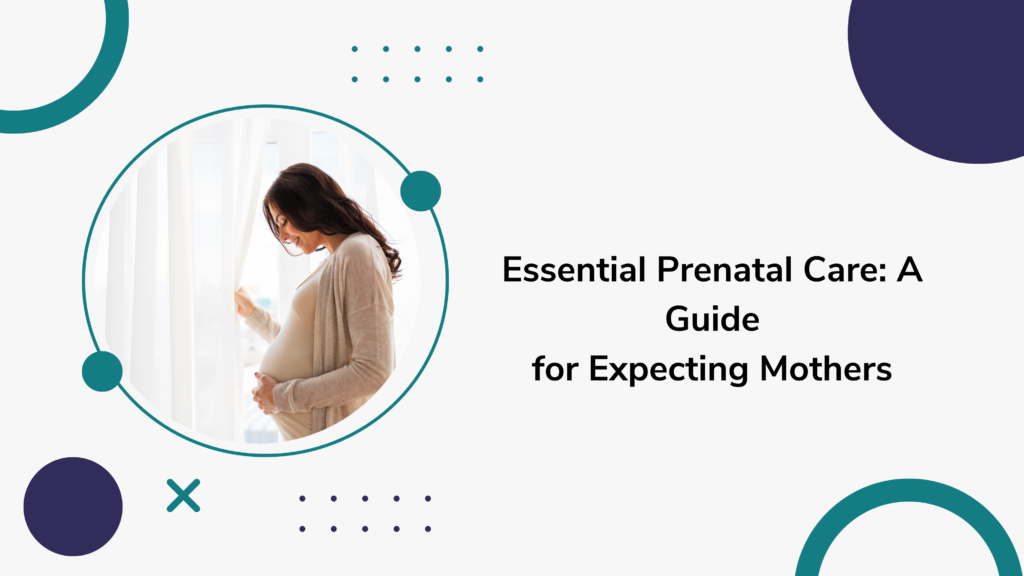Pregnancy is a magical journey filled with anticipation, and as an expecting mother, taking care of yourself and your growing baby is paramount. In this comprehensive guide, we will delve into the world of prenatal care, providing you with essential tips and insights to navigate this transformative period with confidence.
Introduction
Welcoming a new life into the world is a joyous occasion, and ensuring a healthy pregnancy begins with understanding the importance of prenatal care. This guide aims to empower expecting mothers with knowledge, offering a roadmap for a smooth and well-supported journey.
Understanding Prenatal Care Definition and Purpose
Prenatal care involves medical and lifestyle interventions to monitor and support the health of both mother and baby. It is not just about medical check-ups but also about adopting a holistic approach to well-being during pregnancy.
When to Start
Initiating prenatal care early is crucial. Ideally, it should commence as soon as you decide to start a family or discover you’re pregnant. Early care ensures early detection of any potential issues and provides a foundation for a healthy pregnancy.
Choosing the Right Healthcare Provider
The choice between an OB-GYN and a midwife is a significant decision. Each has its merits, and factors such as medical history, personal preferences, and birthing plans play a role in making the right choice.
OB-GYN vs. Midwife
OB-GYNs are medical doctors specializing in pregnancy and childbirth, while midwives offer a more personalized, less medical approach. The decision depends on individual comfort levels and health considerations.
Factors to Consider
Consider factors like proximity to the healthcare provider, their experience, and the hospital facilities. Personal compatibility and communication are also vital for a positive prenatal care experience. First Trimester: The Foundation
Initial Check-ups
The first trimester sets the foundation for a healthy pregnancy. Regular checkups monitor the baby’s development and address any emerging issues. These early visits also help establish a rapport with your healthcare provider. Dietary Guidelines
Nutrition is a cornerstone of prenatal care. A well-balanced diet ensures proper fetal development. Focus on essential nutrients like folic acid, iron, and calcium. Your healthcare provider will guide you on specific dietary needs. Second Trimester: Nurturing Development
Screening Tests
The second trimester often involves various screening tests to assess the baby’s health. Ultrasounds, genetic screenings, and glucose tests provide valuable information for timely interventions if necessary. Exercise and Well-being Maintaining physical activity contributes to overall well-being. Prenatal exercises, such as yoga and walking, help manage weight, reduce discomfort, and promote mental health.
Third Trimester: Preparing for Birth
Birth Plans
As the due date approaches, creating a birth plan becomes essential. Discuss preferences regarding pain management, birthing positions, and who will be present during delivery with your healthcare provider. Final Check-ups The third trimester involves more frequent check-ups. Monitoring the baby’s position, heart rate, and assessing your overall health prepares both you and your healthcare team for a smooth delivery.
Nutrition and Supplements Essential Nutrients
Ensuring the intake of vital nutrients is crucial. Iron supports blood production, calcium strengthens bones, and folic acid prevents neural tube defects. A balanced diet and prenatal vitamins help fill nutritional gaps.
Common Supplements
Your healthcare provider may recommend specific supplements based on your individual needs. These may include omega-3 fatty acids for brain development and vitamin D for bone health. Common Discomforts and How to Manage Them
Nausea and Fatigue
Nausea and fatigue are common during pregnancy. Simple remedies like eating small, frequent meals and staying hydrated can alleviate these discomforts. Consult your healthcare provider for personalized advice.
Safe Remedies
Avoiding over-the-counter medications is crucial during pregnancy. Opt for natural remedies such as ginger for nausea and adequate rest for fatigue. Always consult with your healthcare provider before trying any remedies. Exercise during Pregnancy
Benefits
Exercise during pregnancy offers numerous benefits, including improved mood, reduced back pain, and enhanced stamina for labor. Tailor your workout routine to your fitness level and consult your healthcare provider for guidance.
Safe Practices for low impact exercises and avoid activities that pose a risk of falling or injury. Stay hydrated, listen to your body, and inform your fitness instructor about your pregnancy for modifications in routines.